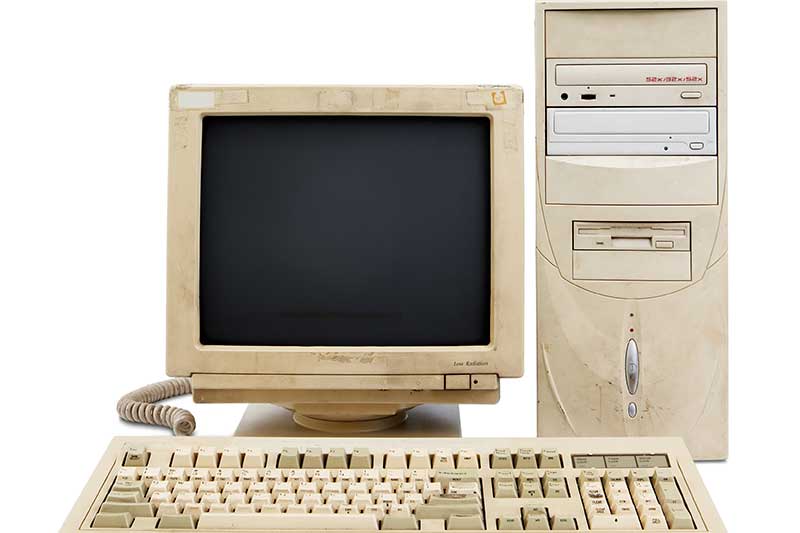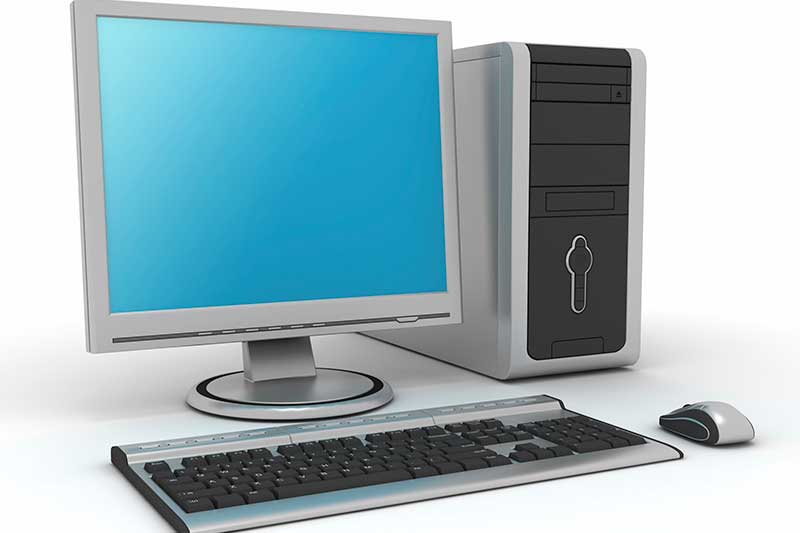Computer Equipment Recycling Montreal
Today, the fight against global warming remains a major challenge for all countries. This requires the adoption of behaviours that preserve the environment. It is with this in mind that the recycling of electronic equipment is part of the way. Indeed, recycling is nothing more than a process that aims to give a second life to certain products and devices (or their components) that have reached the end of their life. However, are there any way to recycle computer and office equipment in Montreal or its boroughs such as Lachine, Verdun, Lasalle, Anjou and Ville Saint-Laurent? This is what this article invites you to discover through its lines.
Recyclage Écran CRT Montreal;
Canada produces nearly 50,000 tonnes of e-waste each year. The CRT screen, still called a cathode tube screen, is an older-generation screen that contains luminophores tubes. The main components that pose health and environmental hazards are leaded glass, barium glass, power cable, capacitor, battery, cathode tube (containing luminophore powders). There are two recycling processes for this type of screen: manual clean-up and automated clean-up. The first technique is to unscrew the device or break the fasteners in order to extract the various components. For the second technique, the different elements are extracted, sorted and separated automatically, after it is placed on a conveyor belt.
LCD Screen Recycling in Montreal
LCD screens are the screen generation that has followed CRT screens. Although they are less energy-intensive than CRT screens, LCD screens also pose environmental hazards. They consist of an LCD screen and a plasma screen. For the LCD screen, the main pollutant is mercury used for the backlighting of mercury lamps. For the plasma screen, the main pollutants are photoluminescents. In the creation of LCD screens, we find ferrous metals and non-ferrous metals, plastic, glass, electronic cards, substances contained in capacitors and batteries, liquid and indium crystals, etc. The LCD screen does not undergo conventional recycling. All the different components are extracted in a specific process that respects the environment and preserves human health.
Laptop recycling
The laptop remains the most used computer equipment in the world, as evidenced by Quebec statistics showing more than 680,000 computers sold per year. The law requires retailers that sell computer products to take back the old ones in return for the purchase of a new one. When recycling your laptop, it’s important to turn to an electronics recycling professional, as computer components are as dangerous to the body as they are to the environment. Plastics are reused in the manufacture of small auto parts, for example; Ferrous metals are fully recycled for use in the manufacture of car parts or construction frames. Electronic cards (motherboard, processor, graphics card, RAM, optical reader, etc.) are also recycled. Non-ferrous metals are used in the manufacture of new cables. Other components such as foams, rubber,etc. are recycled in an energy-efficient way. They are disposed of in incinerators or stored according to a well-defined regulation.
Recycling computer tower
Unlike the laptop which is a set of devices (keyboard, screen, mouse, central unit, etc.), the computer tower designates the central unit without the other devices(screen, keyboard, mouse). Its components are the same as those of a laptop. In this context, the computer tour is also composed of plastic, ferrous and non-ferrous metals, electronic cards, regulated substances such as capacitors, batteries and other materials such as foams, rubber,etc. The recycling of this computer equipment is done according to a specific process while respecting the current rules of preservation of the environment and human health.
Recycling scanners and faxes
Scanner and fax are office equipment that works almost the same way. With technological prowess, there are devices that play both the role of scanner and fax. These devices contain many components that are harmful to human health and the environment. Elements such as glass, plastic, ferrous and non-ferrous metals, electronic cards and others are processed for other equipment. The toner is filled with powdered ink which is harmful to the environment and health.
Recycling printers and ink cartridges
The ink cartridge remains the main polluting component of the printer. For this reason, care must always be taken to separate the ink cartridge from the printer so that recycling is done in the best conditions. As a computer hardware, more than 80% of the printer’s weight is recyclable. Plastics, ferrous metals and non-ferrous metals, liquid crystals, etc. are processed and reused in the manufacture of other products. All of these equipment are carefully dismantled and recycled in accordance with current regulations.
Not all components of these different computer and office equipment are recycled in the same way. This is one of the reasons why users of these different electronic devices are advised to call in a specialist in the recycling of electronic equipment to ensure that care that respects environmental and public health standards is provided. In Montreal and its surroundings such as Dollars des Ormeaux, Dorval, Pointe-Claire, Kirkland and Pierrefonds there is a recycling professional like Info Liquidation Recycle who offers a free collection service of your electronic equipment (computers, offices or others). This electronic equipment recycling expert has a staff of specialists and state-of-the-art equipment who carry out the recycling operations of electronic devices safely.
To benefit from the services of this electronic recycling expert, all you need to do is apply by filling out the online collection form established for this purpose. Within 24 hours,your request is processed and a date confirmation is assigned to you. Once the date has been confirmed, a team of professionals will visit your home within 72 hours to pick up electronic devices. Once the material is recycled, this professional assigns you a certificate of destruction which remains evidence of eco-citizen behaviour.

Frequently asked questions aboutrecycling and picking up computer and office equipment Montreal
What is computer recycling in Montreal?
Computer recycling in Montreal refers to the process of collecting, processing and recovering obsolete electronic waste and computer equipment in the Montreal area. This includes computers, mobile phones, printers, electronic components and other electronic devices.
Computer recycling in Montreal is an integral part of e-waste management efforts in the region. As in many other cities around the world, the rapid growth of the tech industry has led to a significant increase in e-waste, posing environmental and public health challenges.
Computer recycling in Montreal aims to solve this problem by recovering end-of-life electronic devices and treating them responsibly to minimize their impact on the environment. This e-waste, sometimes called e-waste, can include outdated or broken desktops, laptops, tablets, mobile phones, printers, e-cards, and other electronic equipment.
The recycling process begins with the collection of these used electronics. In Montreal, there are several options for citizens and businesses who want to recycle their old appliances. Special collection points for e-waste are available at some designated landfills or recycling centres throughout the city. These facilities are equipped to safely receive used electronics and route them to appropriate recycling facilities.
Once collected, e-waste is transported to specialized recycling centers. There, the devices are expertly disassembled to separate the different components, such as metals, plastics and electronic components. These recoverable materials are then processed for reuse in the manufacture of new electronics or for other industries.
It is essential to follow the regulations in force when recovering computers in Montreal. This includes compliance with environmental standards and compliance with laws regarding the treatment of hazardous waste. It is also recommended that you erase all personal data from your devices before recycling it to protect your privacy.
Computer recycling in Montreal has significant advantages. In addition to reducing the amount of e-waste sent to landfill, it helps save natural resources and reduce the carbon footprint associated with manufacturing new electronics. In addition, it helps create jobs in the recycling sector, contributing to the local economy.
In conclusion, computer recycling in Montreal is an essential step towards responsible management of electronic waste, thus promoting a healthier environment and a more sustainable circular economy.
How can I recycle my old electronics in Montreal?
In Montreal, there are many ways to recycle your old electronics. You can drop them off at special e-waste collection points located in some of the city’s landfills or recycling centers. You can also participate in e-waste collection programs organized by government agencies or recycling companies.
What happens to recycled electronics in Montreal?
Once collected, the electronics are transported to special recycling facilities where they are appropriately dismantled. Recoverable materials such as metals, plastics and electronic components are extracted and processed for reuse in the manufacture of new products. Toxic and hazardous substances are managed responsibly and in accordance with environmental standards.
What are the advantages of computer recycling in Montreal?
Computer recycling in Montreal has several important advantages. It reduces the amount of e-waste sent to landfill, which helps preserve the environment. In addition, recycling recovers valuable materials, reducing dependence on natural resources and mining. Finally, it helps create jobs in the recycling industry and promotes a more sustainable circular economy.
Are there any specific rules to follow for computer recycling in Montreal?
Yes, it is essential to follow certain rules for computer recycling in Montreal. Be sure to drop off your electronics only at authorized collection points or city-approved recycling programs. Be sure to erase your personal data and secure your devices before recycling them. If you are not sure how to proceed, check with recycling organisations or local authorities for specific information on recycling rules in the area.


